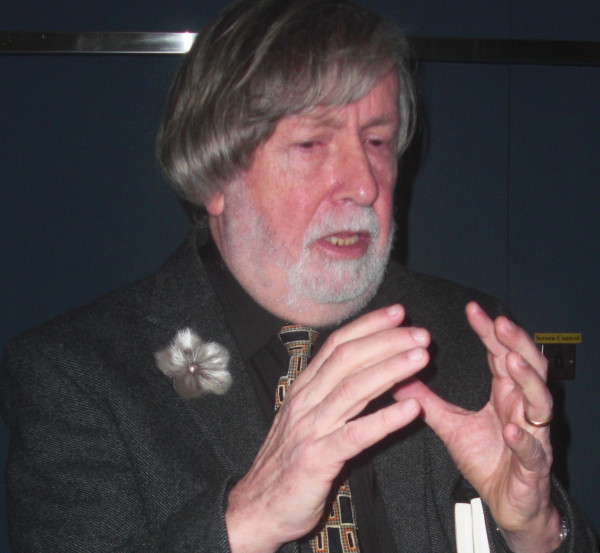Tokyo says nuclear reactors should be restarted but this raises a question of why. This matter was raised by Dr. Gordon Edwards – co-founder Canadian Coalition for Nuclear Responsibility (CCNR) – in a note to Pressenza. It will be recalled by those following the nuclear industry that the recent Tokyo municipal elections brought into office a pro-nuclear candidate, Yoichi Masuzoe, who got 30% of the vote. Ironically, more people voted for the two anti-nuclear candidates than those who voted for the pro-nuclear candidate, yet the pro-nuclear side won!
The newly-elected Governor supports Prime Minister Abe in his determination to restart many of the 54 nuclear reactors in the country, all of them currently shut down due to public anger over the collusion between government and industry in relation to the Fukushima disaster. The nuclear fleet in Japan has been reduced from 54 to 48 by the simple fact that none of the six reactors at Fukushima Dai-ichi will ever operate again.
Gordon Edwards gave a background briefing on those who stand against further development of Japan’s nuclear industry and adds a concluding comment as follows:
At least three Japanese ex-Prime Ministers are completely opposed to continuing Japan’s nuclear energy dependence and instead are speaking out publicly for an immediate nuclear phase-out in Japan.
(1) Naoto Kan was Prime Minister of Japan when the Fukushima disaster struck. As Scientific American has reported:
On March 10, 2011, Prime Minister Naoto Kan felt assured that nuclear power was safe and vital for Japan. By the evening of the next day, following the massive Tohoku earthquake, the ensuing tsunami and the beginnings of the crisis at the Fukushima Daiichi nuclear power plant, he had changed his thinking “180 degrees.”
Mr. Kan has since toured the world with a strong anti-nuclear message, not only for Japan, but for everyone.
(2) Another ex-Prime Ministers who has become a staunch opponent of nuclear energy in Japan’s future is Morihiro Hosokawa who ran in the recent election for Governor of Tokyo on an anti-nuclear platform, drawing about 20 % of the vote. Another anti-nuclear candidate in that same election, Kenji Utsumoniya, also gained about 20 % of the vote.
(3) Mr. Hosokawa was endorsed and inspired by a very popular figure in Japan, the former Prime Minister, Junichiro Koizumi, who publicly and dramatically renounced the earlier pro-nuclear stance that he had when he led the country. Koizumi indicated the main focus of the Tokyo election will be whether to pursue nuclear power or not, calling the election “a war between the group that says Japan can grow with zero nuclear power plants” and the group that says it cannot. He added, “We can change the country for sure if we show that Tokyo can live without nuclear power.”
Meanwhile, The Japanese government continues to reprocess irradiated nuclear fuel from Japanese nuclear reactors in order to separate the plutonium from the rest of the high-level radioactive waste – the idea being to use the plutonium as reactor fuel in the future. By continuing this reprocessing of used nuclear fuel, the Abe administration is doing all that it can to ensure that nuclear energy cannot easily be phased out in Japan. The Abe administration argues that the best way to deal with the stockpile of plutonium is to use it as fuel in nuclear reactors – using this as an argument to restart the reactors that are now shut down, and possibly even to justify building new reactors too.
Meanwhile, the ominous implication of having a stockpile of separated plutonium is that nuclear weapons can be built relatively quickly if a political decision were ever taken to do so – with or without a change in the country’s constitution. The belligerent attitude of North Korea and that country’s possession of nuclear weapons, together with recent displays of military prowess by China vis-a-vis Japan, could play a role in deciding the future of Japan’s plutonium stockpile.
The Japanese people are going to have to come to grips with a fundamental question if they wish to exert some control over the country’s future: Why is plutonium still being separated from irradiated nuclear fuel when the future of nuclear power in Japan is far from certain?










